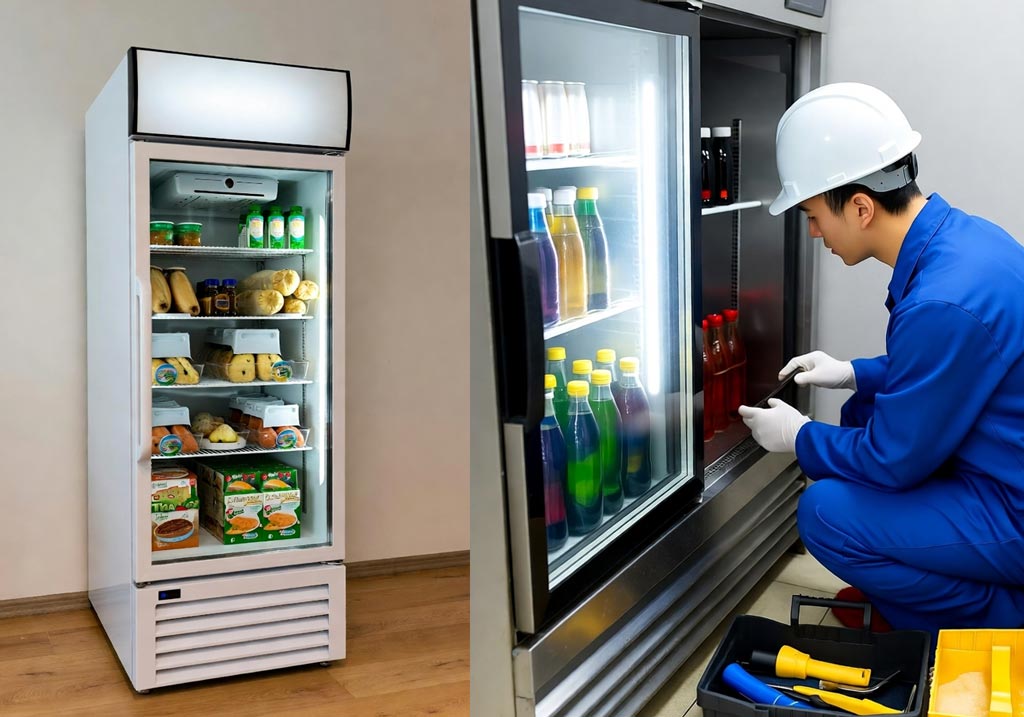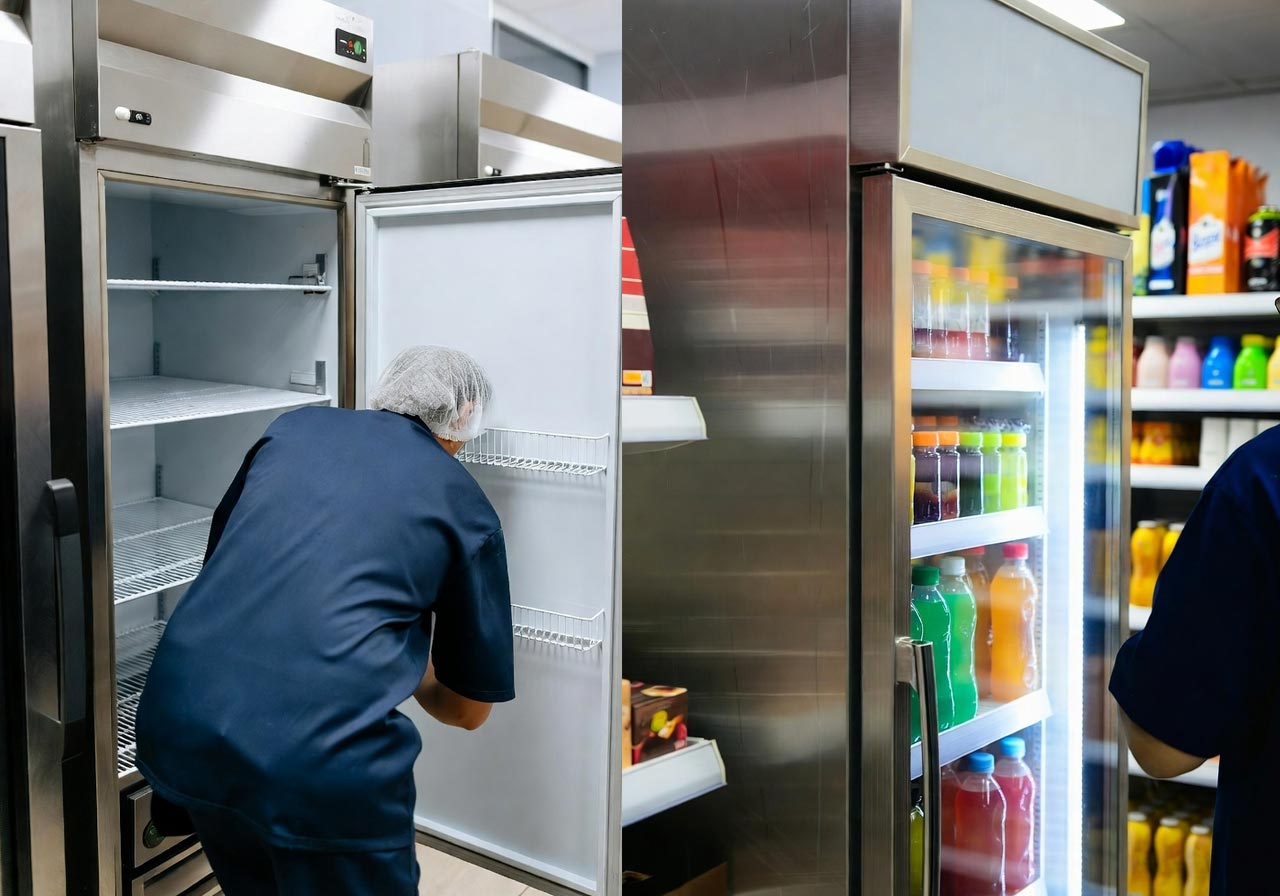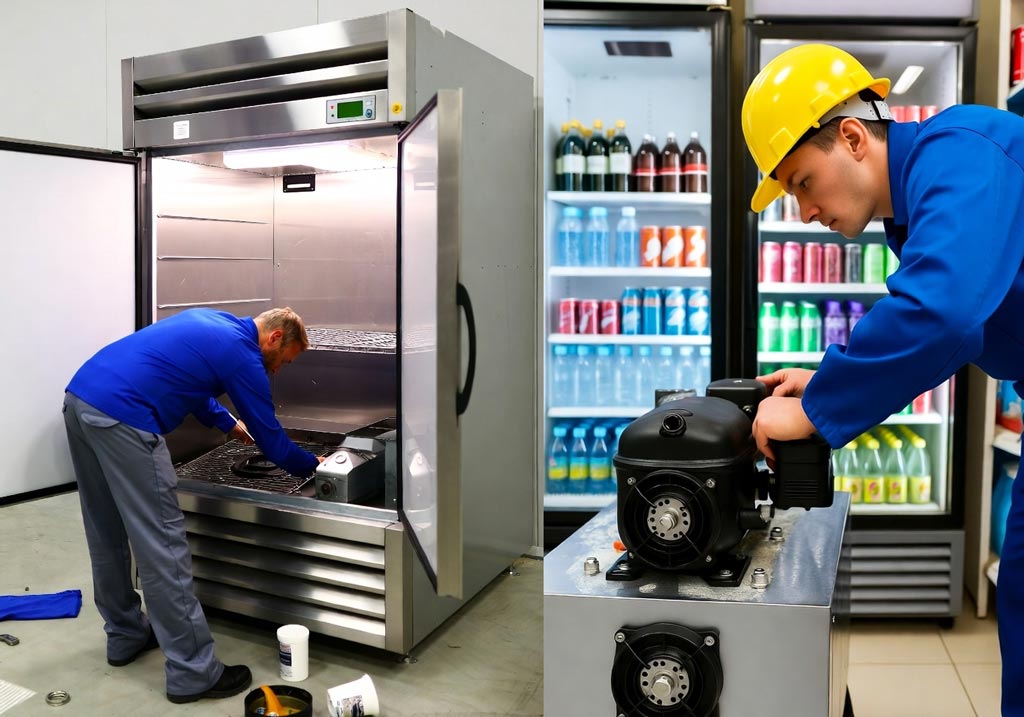
How to Reduce Energy Costs with Commercial Refrigeration Maintenance in the UK
Introduction
Energy costs across the United Kingdom have fluctuated significantly in recent years, impacting hospitality, retail, food production and pharmaceutical sectors. Commercial refrigeration systems run continuously and can account for a substantial portion of a business’s electricity bill. Poor maintenance, worn components and incorrect temperature settings can lead to unnecessary energy consumption and higher operational costs.
Properly maintained refrigeration equipment not only reduces energy usage but also extends system lifespan, improves temperature stability, lowers breakdown risks and protects valuable stock. This guide explores practical strategies UK businesses can implement to improve refrigeration efficiency, minimise utility costs and maintain compliance with food safety regulations. These recommendations are ideal for restaurants, supermarkets, hotels, bars, cafés, bakeries, catering facilities and commercial kitchens operating nationwide.
Why Energy Efficiency Matters in Commercial Refrigeration
Commercial refrigeration consumes more energy than most other equipment in the food service industry. Rising costs can quickly impact profit margins. Improving efficiency offers:
- Lower operational expenses
- Reduced compressor strain
- Improved temperature consistency
- Longer equipment lifespan
- Reduced environmental impact
Proper maintenance is the most effective way to stay energy efficient.
Discover our full refrigeration services:
https://mkrefrigeration.co.uk/our-services/
Factors That Increase Energy Consumption
Poor Ventilation
Blocked ventilation restricts airflow, causing compressors to work harder for longer periods.
Dirty Condenser Coils
Dust, grease and debris reduce heat transfer, dramatically increasing energy usage.
Worn Door Seals
Damaged gaskets allow warm air to enter and cold air to escape, destabilising temperature.
Incorrect Temperature Settings
Setting internal temperatures too low is both unnecessary and costly.
Overloaded Shelving
Blocking evaporator airflow forces the unit to operate excessively.

Effective Ways to Reduce Energy Costs
Optimise Temperature Settings
Each refrigeration unit has recommended temperature ranges. Running below these values wastes energy without improving product freshness.
Maintain Adequate Space Around Units
Keep at least 10–15 cm clearance around ventilation grilles to support proper airflow.
Clean Condenser Coils Regularly
A monthly cleaning schedule helps reduce compressor load and improves cooling speed.
Replace Damaged Door Gaskets
If seals are cracked or loose, cold air escapes, increasing running time. Replacement is inexpensive and highly effective.
Avoid Overloading Your Refrigeration Unit
Overpacked shelves restrict airflow. Cold air must circulate freely to maintain a stable environment. In UK commercial kitchens, oversupply during peak periods often contributes to excessive energy usage.
Invest in Energy-Efficient Components
LED Lighting
Reduces heat output and lowers electricity consumption.
Smart Thermostats
Improve temperature accuracy and reduce fluctuations.
Strip Curtains
Minimise temperature loss in walk-in chillers and freezers.
Schedule Preventative Maintenance Visits
Professional servicing ensures:
- Accurate refrigerant levels
- Correct thermostat calibration
- Efficient condenser operation
- Clean evaporator components
- Leak-free seals
Preventative contracts eliminate emergency repair costs and optimise energy performance.
Book professional maintenance:
https://mkrefrigeration.co.uk/booking/
Monitor Temperature Logs
Many UK businesses rely on digital temperature recordings. Sudden fluctuations signal internal inefficiencies affecting energy usage. Consistent logs improve compliance and reduce spoilage.

Upgrade Ageing Systems
Older refrigeration units consume significantly more energy. Replacement may be more cost-effective than persistent repair. Modern compressors and insulation technology can reduce running costs by up to 30%.
Reduce Door Openings
Prolonged door openings cause rapid temperature spikes. Consider:
- Staff training
- Automatic door closers
- Hands-free access solutions
In high-traffic environments, small changes produce measurable results.
Use Night Blinds on Display Chillers
Retail environments often leave display chillers exposed overnight. Night blinds retain cold air, reducing compressor load and maintaining temperature stability for food safety compliance.
Control Humidity Levels
High humidity causes frost build-up, forcing defrost cycles to work harder. Regular fan and drain inspections help prevent excess moisture accumulation.
Ensure Correct Airflow in Walk-In Units
Products should not be stacked against walls or evaporator fans. Obstruction creates warm pockets and triggers excessive compressor cycling.
Implement Staff Training Programmes
Educating staff results in:
- Proper loading practices
- Reduced door openings
- Cleaner coil maintenance
- Faster response to abnormal noises
Training protects equipment and reduces running costs.
Conduct Regular Leak Inspections
Refrigerant leaks are common in older systems. When levels drop, compressors run harder, requiring more electricity to maintain safe temperatures. Only certified technicians should handle refrigerants under UK F-Gas regulations.
Contact professional engineers:
https://mkrefrigeration.co.uk/contact-us/
Consider Night-Time Refrigeration Scheduling
During quieter hours, well-maintained units stabilise more easily. Defrost cycles can be programmed when doors remain closed to maximise efficiency.
Why Professional Maintenance Is Essential
A trained engineer can identify minor issues before they become costly failures. Services include:
- Compressor performance testing
- Thermostat accuracy checks
- Electrical connection inspection
- Condenser and evaporator analysis
- Airflow diagnostics
These checks optimise operational efficiency, reducing total energy consumption.
Energy-Saving Solutions for Different Businesses
Restaurants and Cafés
Strip curtains and LED lighting make a noticeable difference.
Supermarkets
Night blinds prevent overnight temperature rise.
Hotels and Bars
Upgraded thermostats and sealed doors improve consistency.
Pharmaceutical Storage
Temperature logs ensure compliance and reduce drift.
The Long-Term Benefits of Energy Efficiency
By improving refrigeration efficiency, businesses achieve:
- Lower monthly utility bills
- Reduced component wear
- Improved food quality
- Better hygiene compliance
- Longer system lifespan
Efficiency investments create long-term operational savings.

Frequently Asked Questions
How often should condenser coils be cleaned?
Monthly in commercial kitchens, quarterly in low-traffic environments.
Do damaged door seals increase energy costs?
Yes, they allow warm air inside, forcing longer compressor cycles.
Is upgrading lighting worthwhile?
LED lighting reduces heat output and lowers electricity usage.
Can poor airflow damage refrigeration components?
Yes, blockage increases compressor workload and reduces lifespan.
Do you provide nationwide refrigeration maintenance?
Yes, including London, Birmingham, Manchester, Leeds, Bristol and Glasgow.
Conclusion
Reducing energy costs in commercial refrigeration is achievable through a combination of system maintenance, component upgrades and operational adjustments. Proper cleaning, airflow management, door seal replacement and strategic temperature settings all contribute to significant long-term savings. By investing in preventive maintenance and staff training, UK businesses can protect stock, enhance compliance, reduce breakdown risks and extend system lifespan.
MK Refrigeration provides professional servicing, emergency call-out support and tailored maintenance plans designed to improve efficiency and reduce energy consumption across the United Kingdom.
Contact MK Refrigeration
📞 Call For Services: (+44) 2037508743
✉️ Send Us Email: info@mkrefrigeration.co.uk
🚨 Emergency Call-Out: 07388 898148
🌐 https://mkrefrigeration.co.uk/contact-us/
Book a maintenance visit:
https://mkrefrigeration.co.uk/booking/






